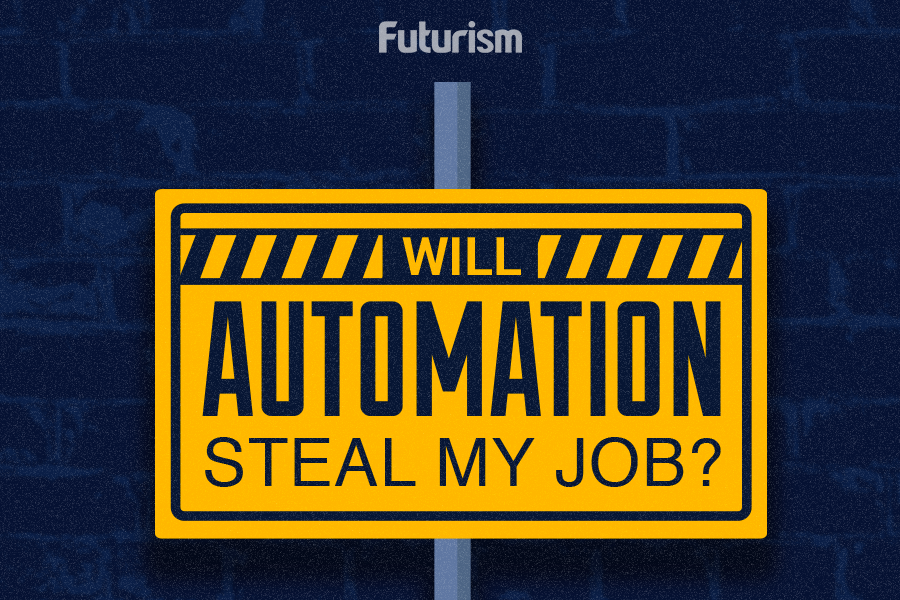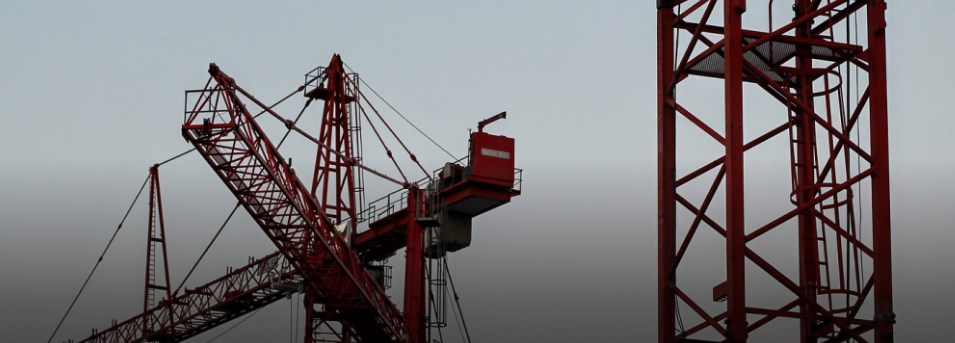Robots Are Preparing to Fill 200,000 Vacant Construction Jobs
Though many fear the unemployment that could follow the widespread adoption of automated systems, they could be a welcome addition to the construction industry, which currently suffers from a lack of workers and stagnant productivity levels.
[edit] READY FOR DISRUPTION
Automation has long been considered the harbinger of future unemployment, and experts have predicted that the widespread adoption of artificially intelligent (AI)software and smart machines could lead to thousands or even millions of people losing their jobs.
 Click to View Full Infographic
Click to View Full Infographic
However, that may not be the case in the construction industry. In fact, with a growing shortage in labor, it’s one sector that’s particularly well-suited for an automation takeover.
According to a report released by McKinsey & Company earlier this year, the world of construction suffers from productivity levels that haven’t really gone up much since 1945. The report also showed that 98 percent of huge construction projects end up going over budget and that the industry has proven resistant to technological upgrades. Furthermore, data from the Bureau of Labor Statistics shows that almost 200,000 construction jobs were unfilled in the United States alone as of February 2017.
To sum, a lingering inefficiency seems to plague the industry, and it could be remedied through the use of automated systems and machines.
[edit] NEW JOBS, BETTER LIVES
A number of AI-powered systems that could help alleviate the construction industry’s woes are currently in development. These include a mobile construction worker, as well as a mobile 3D-printer, both of which are capable of adjusting to their immediate environment. Almost always, these AI construction systems are able to finish their tasks more efficiently and quickly than their human counterparts, so construction seems to be a nice fit for automation.
Some critics are wary of this kind of intelligent automation because they view it as an attempt to replace human workers. While it’s true that automated systems might cause some unemployment, they could also lead to the creation of new jobs that we haven’t really needed before, such as providing maintenance for these automated systems.
Still others argue that automation, coupled with universal basic income (UBI), would free people to pursue other meaningful endeavors, such as content creation. This pairing could also give people time to learn more and to tackle larger issues, so before we dismiss automation as a negative, we must consider all possibilities.
References: Recode, U.S. Bureau of Labor Statistics, McKinsey & Company
Please find the original article here .
- Written by
Dom Galeon, Writer , Futurism
--Future of Construction 10:19, 30 Aug 2017 (BST)
Featured articles and news
UKCW London to tackle sector’s most pressing issues
AI and skills development, ecology and the environment, policy and planning and more.
Managing building safety risks
Across an existing residential portfolio; a client's perspective.
ECA support for Gate Safe’s Safe School Gates Campaign.
Core construction skills explained
Preparing for a career in construction.
Retrofitting for resilience with the Leicester Resilience Hub
Community-serving facilities, enhanced as support and essential services for climate-related disruptions.
Some of the articles relating to water, here to browse. Any missing?
Recognisable Gothic characters, designed to dramatically spout water away from buildings.
A case study and a warning to would-be developers
Creating four dwellings... after half a century of doing this job, why, oh why, is it so difficult?
Reform of the fire engineering profession
Fire Engineers Advisory Panel: Authoritative Statement, reactions and next steps.
Restoration and renewal of the Palace of Westminster
A complex project of cultural significance from full decant to EMI, opportunities and a potential a way forward.
Apprenticeships and the responsibility we share
Perspectives from the CIOB President as National Apprentice Week comes to a close.
The first line of defence against rain, wind and snow.
Building Safety recap January, 2026
What we missed at the end of last year, and at the start of this...
National Apprenticeship Week 2026, 9-15 Feb
Shining a light on the positive impacts for businesses, their apprentices and the wider economy alike.
Applications and benefits of acoustic flooring
From commercial to retail.
From solid to sprung and ribbed to raised.
Strengthening industry collaboration in Hong Kong
Hong Kong Institute of Construction and The Chartered Institute of Building sign Memorandum of Understanding.
A detailed description from the experts at Cornish Lime.


























